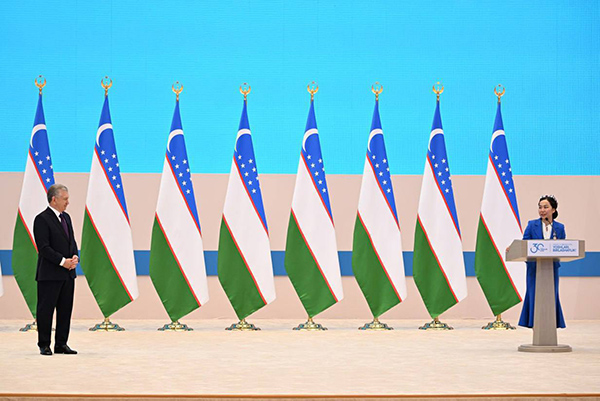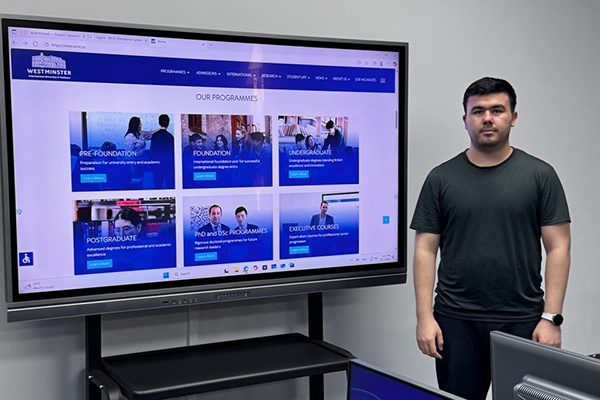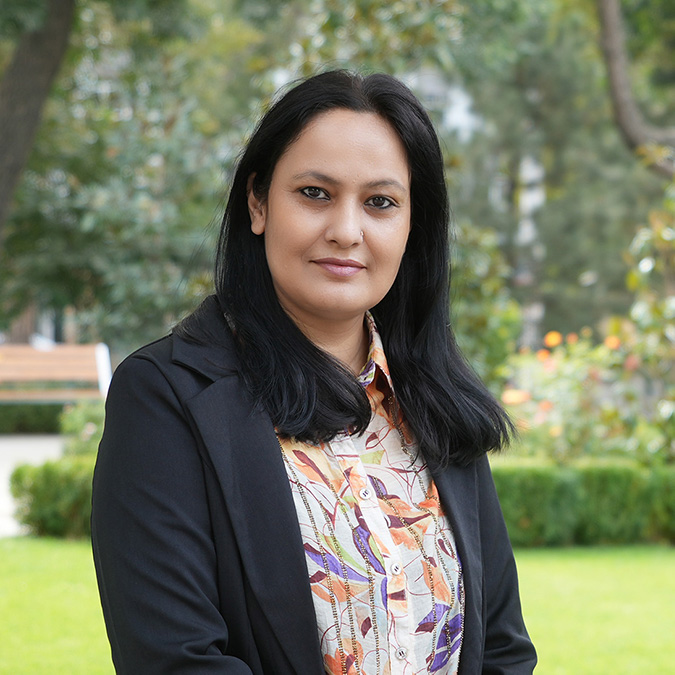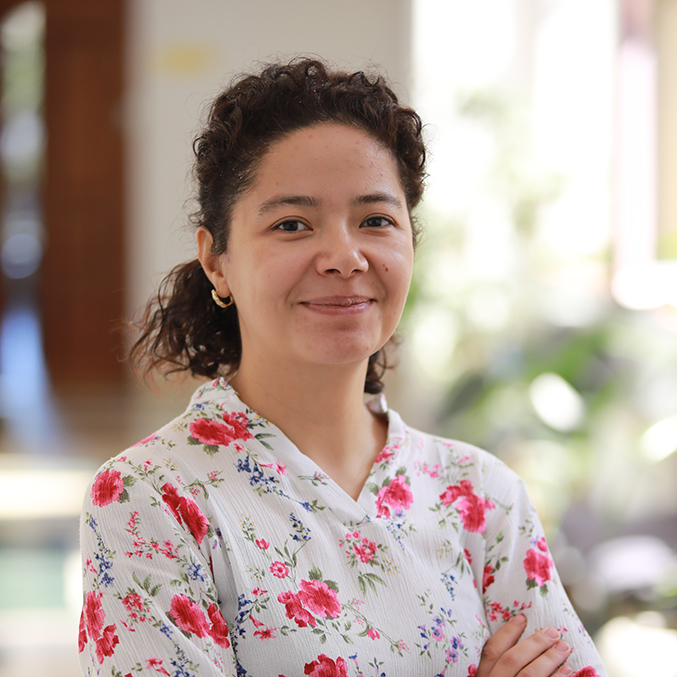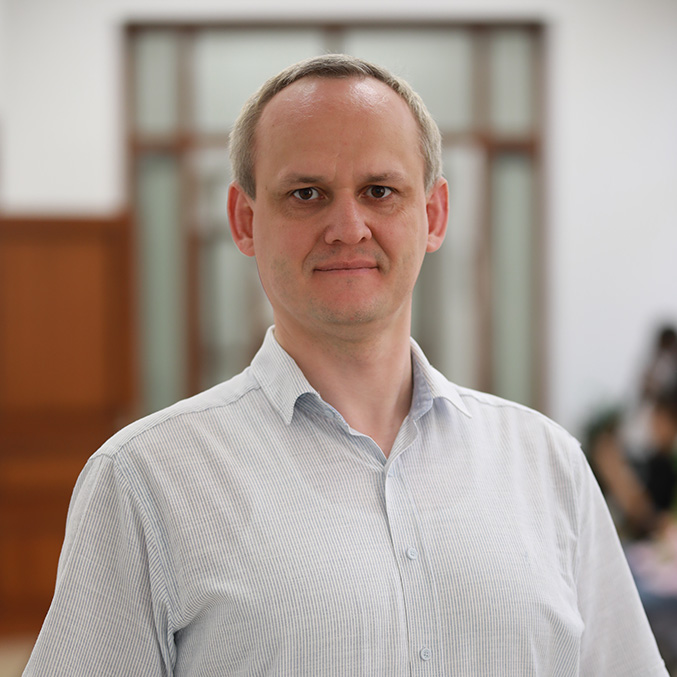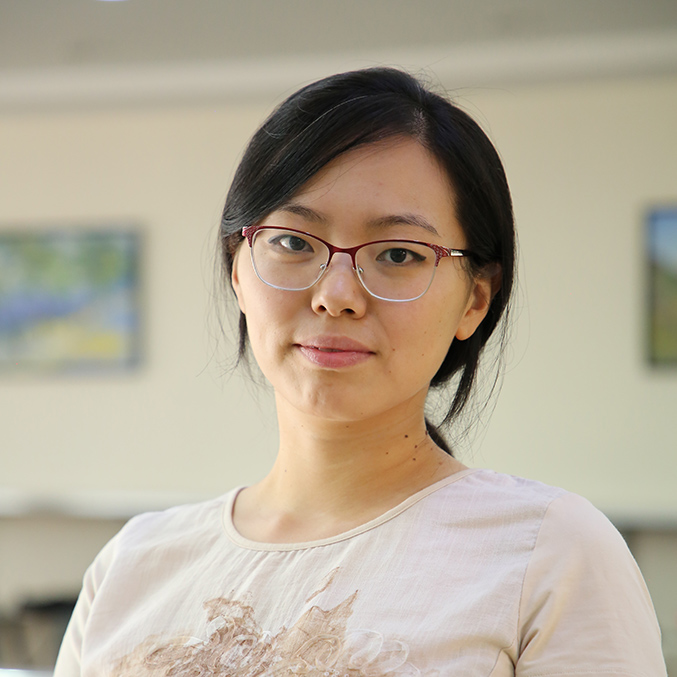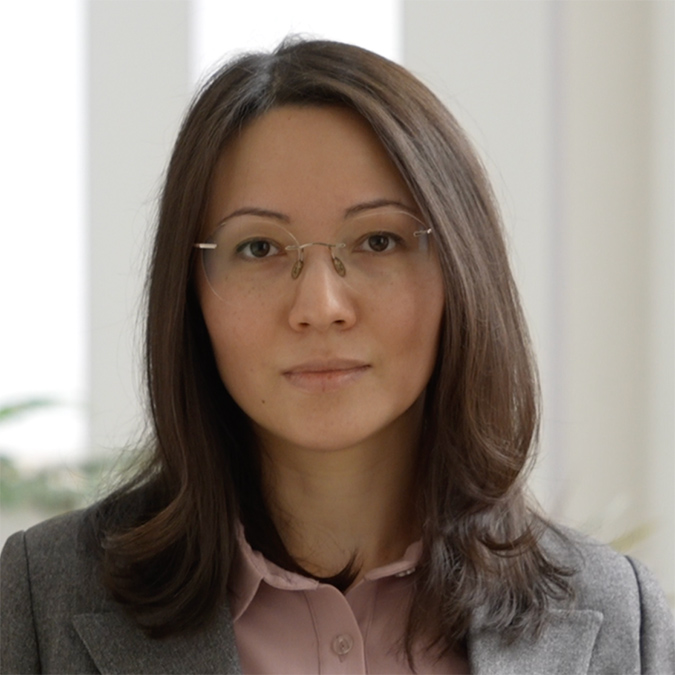BSc (Hons) in
Business Information Systems
Designed to prepare professionals with a strong background in information systems management and a deep understanding of the dynamic world of business and technology.
School of Law, Technology and Education
COURSE OVERVIEW
The Business Information Systems course has been designed to prepare professionals with a strong background in information systems management and a deep understanding of the business context and needs. The course aims to give students an education in the key areas of the discipline of both business and information systems, providing an understanding of underpinning theories, tools and techniques. Along with developing key analytical abilities, the course is designed to enhance your team-working, problem-solving, communication skills and business awareness that are highly important in an intertwined global world. Throughout your course, you will acquire the transferable and cognitive skills necessary for lifelong personal and professional development enabling graduates to gain employment in a business environment or to proceed to further study.
This course has been developed in accordance with the UK Quality Assurance Agency (QAA) Subject Benchmark Statements for Management and Computing, ensuring that learning outcomes, knowledge, and skills reflect the standards of UK higher education.
WHAT YOU NEED TO KNOW
Award Title
Bachelor of Science (Hons)
Start Date
September (each academic year)
Duration
3 years (full time)
Tuition Fees
Domestic - 36,292,800 UZS /per year
International - 54,600,000 UZS /per year
HOW YOU WILL STUDY
The course emphasises active student learning through seminars and lectures (including virtual), computer-lab workshops, problem-based and blended learning activities designed to engage your interest. Course material will be provided through the online learning platform and is an important resource base for you which you can access at any time and from anywhere provided you have access to the internet.
Lectures provide foundational knowledge on key concepts, theories, and frameworks related to business information systems. Lectures often include multimedia presentations and guest speakers from the industry.
Seminars and workshops are provided each week to foster a stimulating environment for you to work through examples and case studies, experiment with hands-on solutions in the labs, engage in group discussions or on-line discussions, and gain immediate feedback and support from teachers.
- Year 1 (Level 4): 80 core credits + 40 credits of optional/elective modules that give you a strong foundation in business, IT, and information systems.
- Year 2 (Level 5): 80 core credits + 40 credits of optional modules, allowing you to start tailoring your learning towards data, programming, and information systems management.
- Final Year (Level 6): 60 core credits + 60 optional credits, focusing on areas like AI, cloud computing, project management, and digital marketing.
Independent study is a key learning skill for academic study and for your future employability. As part of the BSc (Hons) in Business Information Systems course, you are expected to work independently. This may take various forms such as group collaborative tasks, research, reading, revision, assessment preparation, projects that feed into presentations and debates, lab or studio-based work. You are encouraged, guided and supported towards developing your professional skills as an independent critically aware learner. Each module requires both specified lecture hours and independent learning.
COURSE STRUCTURE
Please note: Not all option modules will necessarily be offered in any one year. In addition, timetabling and limited spaces may mean you cannot do your first choice of modules.
WHY CHOOSE BUSINESS INFORMATION SYSTEMS AT WIUT?
Unique flexibility – customise your Business Information Systems degree with a wide range of electives in IT, business, management, and marketing.
Academic excellence – learn from faculty who are both research-active scholars and experienced IT & business professionals involved in international projects.
Practical learning – gain hands-on skills in data analysis, IT strategy, and business management through modern teaching methods and real-world projects.
Career opportunities – prepare for roles in IT consulting, project management, data analysis, and digital business transformation.
Future-ready skills – develop critical thinking, creativity, and transferable skills that employers in Uzbekistan and abroad demand.
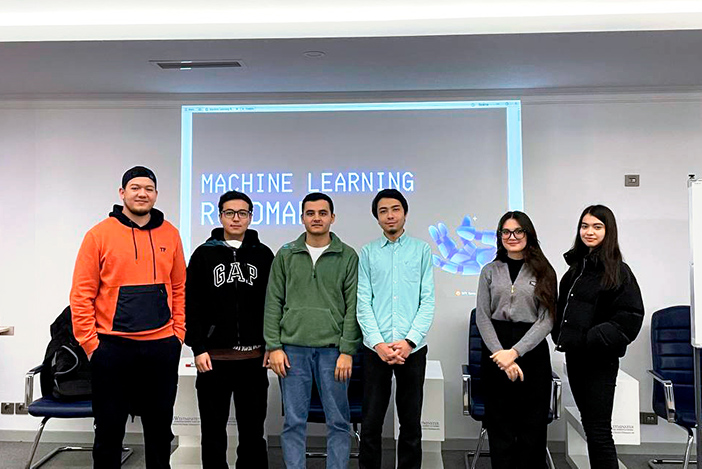
EXTERNAL ENGAGEMENT
The course integrates external engagement opportunities that connect students directly with industry, helping them apply knowledge in real-world contexts and build professional networks. Our students benefit from:
Guest lectures from leading professionals in business, technology, and management.
Professional Practice Placement module, offering short industry placements to gain hands-on experience.
Field trips to innovative companies and organisations, exploring how information systems drive business success.
Authentic assessments based on real company cases, live business challenges, and actual datasets.
Industry feedback events including poster presentations, game pitches, viva voce exams, and project showcases with invited specialists.
ASSESSMENT METHODS
The course uses a wide variety of assessment methods to evaluate both technical and business skills. Formal exams test students’ knowledge of key concepts in IT, business, and information systems, while in-class PC lab tests assess practical abilities in programming, data analysis, and system design. These assessments ensure that students can apply theoretical knowledge to real-world scenarios.
Students are evaluated through projects, case studies, portfolios, and presentations, helping them develop problem-solving, teamwork, and communication skills. Regular quizzes and reflective journals provide continuous feedback and support personal growth.
Assessments are designed to promote creativity, time management, teamwork, and professional communication - key attributes for a successful career in Business Information Systems in Uzbekistan and globally.
ENTRY REQUIREMENTS
We are committed to delivering a professional, fair, and transparent admissions process that ensures equal opportunity for all applicants. Our aim is to connect students with courses that align with their goals and their ability to meet academic and professional standards. Find out more Admissions policy and Terms and conditions.
-
Applicants should satisfy at a minimum one of the following requirements:
- Successful completion of an appropriate International Foundation course; or
- Successful completion of the first year of an appropriate degree course in a recognised Uzbek or similar university; or
- Two GCE A level passes (only subjects directly relevant to the field of study applied for. The University reserves the right to assess the suitability of subjects presented and to determine their alignment with programme entry requirements), plus three GCSE passes at grade C or above including English Language and Mathematics; or NC/ND or HNC/HND. The range of academic disciplines studied is not hereby restricted, but certain vocational courses such as City and Guilds would not satisfy the admissions requirements; or
- An Advanced General National Vocational Qualification (GNVQ); or
- Any other equivalent qualification normally accepted as entry requirement (e.g. International Baccalaureate, etc.).
-
Applicants must have:
- Completed their secondary education in English and achieved Grade C or above in the equivalent GCSE English exam; or
- IELTS score of 6.5 with a minimum of 6.0 in the writing component; or
- Successfully completed an appropriate International Foundation course with a "pass" in an Academic English module.
We accept the TOEFL (IBT (In person test) for entry to our programmes. We also accept TOEFL ‘My Best Scores’ where it relates to TOEFL iBT test results.
Please note that the TOEFL Home Edition (Online test) is not accepted for entry to WIUT degree programmes.
- TOEFL should be 85 overall with a minimum of 22 in Writing
-
Age requirements
Applicants will have to be 18 years of age at the start of the academic year. For the purposes of this regulation, the academic year runs from 1st October to 30th September of the following year.
Applications are normally processed based on the documentation submitted on the WIUT admissions system. The University reserves the right to introduce other admission processes such as an interview.
-
Applicants must have an acceptable level of competence in Mathematics. This could be demonstrated by one of the following:
- A "pass" in a maths test approved by the University of Westminster (UK); or
- Grade C or above in GCSE/’O’ Level Mathematics (or its equivalent); or
- SAT mathematics component 570; or
- Successful completion of an appropriate International Foundation course with "pass" in Quantitative Methods module.
GLOBAL OPPORTUNITIES: EXCHANGE PROGRAMME IN LONDON
The Business Information Systems (BIS) degree at WIUT offers students the opportunity to study abroad through the Student Exchange Programme. BIS students may spend a semester at the University of Westminster in London, one of the world’s leading centres for business, innovation, and technology.
This international experience allows students to broaden their academic knowledge, gain cross-cultural skills, and strengthen their professional networks. Credits earned abroad are fully recognised at WIUT, ensuring a seamless continuation of studies while earning a globally respected UK degree. Find out more at Student exchange programme.

RECENT ACHIEVEMENTS
Second-year BIS student Gulasal Butayeva has been awarded the “Kelajak Bunyodkori” Medal by presidential decree, in recognition of her outstanding achievements, leadership, and contributions to the prestige of Uzbekistan. She is also an IELTS 9.0 holder, a FLEX alumna, and has won multiple awards in international science Olympiads. Gulasal is also active in promoting women in the field of STEM and was Uzbekistan's representative at NextGen TechCamp in Astana.
In December 2024, Otabek Mirzabekov, a Business Information Systems student, achieved national recognition as a winner of the President Tech Award Hackathon - a prestigious competition initiated by the President of Uzbekistan with a $1,000,000 prize pool. The contest brings together the most talented and creative software developers across the country, offering them opportunities to establish their own startups with state support. Otabek’s achievement is a proud example of the innovative spirit and technical excellence fostered within BIS programme.
Final-year BIS student Juma Bozorov has managed to secure the world-widely recognised Offensive Security Certified Professional (OSCP) certificate, bringing into light his expert knowledge of penetration testing, vulnerability analysis, and information security techniques. His success is a testimonial to the programme's firm foundation in information systems and security as well as motivation from dedicated professors and tutors.
WIUT continues to showcase excellence in competitive programming. At the ICPC Uzbekistan National Round, our Business Information Systems and Computer Science students delivered an outstanding performance among 150+ teams.
- Unfazed 3.0 — Bronze Medal, 7th place (improving from 11th last year)
- WIUTBEK — 14th place
Both teams have successfully qualified for the ICPC Semi-Finals in Astana, reaffirming WIUT’s growing strength in algorithms, problem-solving and computer science.
OUR GRADUATES WORK AT











CAREERS
Graduates enter high-demand fields such as business analytics, systems and application development, game development, project and IT consultancy, both in Uzbekistan and globally.
Career paths include:
Systems Designer, Business/Data Analyst
IT Consultant, Database Administrator, ERP/Enterprise Systems Consultant
Digital Transformation or IT Project Manager, CIO/CTO, Product/Startup Founder
The programme also prepares you for postgraduate study in areas like Business Intelligence, Information Security, Big Data, Machine Learning, or Computer Science.
In today’s digital economy, where technology-related roles are the fastest-growing in the global job market, BIS graduates are well-positioned to succeed in both employment and leadership opportunities.

COURSE LEADER
Nargiza Akramova joined WIUT in 2016 and has since worked as a Research Assistant, Associate Lecturer, and Lecturer in Computing.
Education: She earned her BSc in Business Information Systems from WIUT in 2016, followed by an MSc in Cyber Security with Distinction from Northumbria University, London, in 2019. Currently, she is pursuing a PhD in Computer Science at the University of Westminster in London.
TAUGHT BY TEAM OF EXPERTS
WHAT OUR GRADUATES SAY

Datacom Product Manager at Huawei, Uzbekistan

Middle Business Analyst in IT company, Saint Petersburg

Ph.D. student at University of Westminster, London
TAKE THE NEXT STEP
Are you considering Westminster International University in Tashkent but unsure where to begin?
Our admissions counsellors are available to assist you. Have all your queries addressed to make an informed decision about your future.
RELATED PROGRAMMES

MSc in
Business Intelligence and Analytics
Master data science and analytics tools. Support smart business decision‑making.

MA in
International Business Management (with 3 pathways)
Study entrepreneurship, tourism or innovation. Prepare for leadership in business.

BSc (Hons) in
Computer Science
Explore coding, AI and software engineering to shape future technology.

